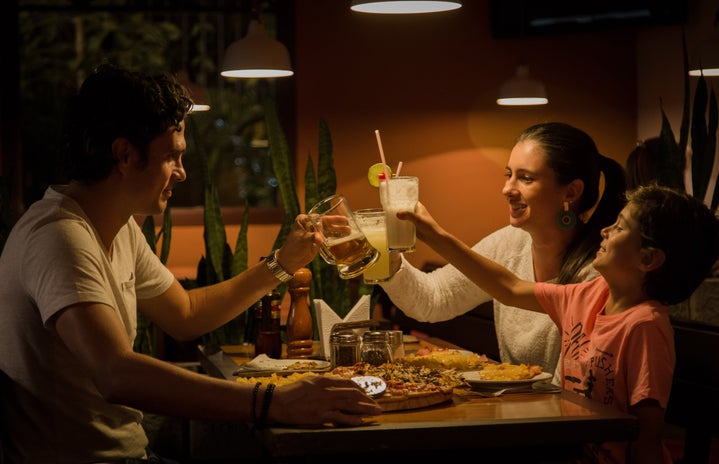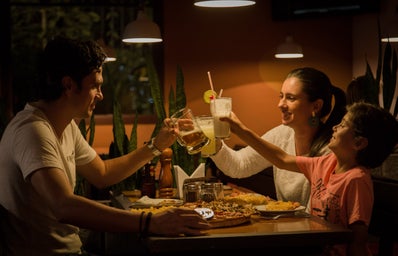Ever since I was a kid, one of the first things I understood was familia (family). It was a fairly small word; one that I was relieved to learn. It was similar enough in English that I wouldn’t have to stumble around in saying. However, It fell flat sometimes, tasting different in English. Growing up, I didn’t care to think too hard on this because what did a word from two languages matter all that much?
My brother knew, and eventually I did too, but it took a while.
At an early age, my brother began reminding me that the people that will always matter is our family. As far as I could understand, our world as children consisted of our mother and our sister. I always shrugged it off and thought, of course, I know that it’s our family for crap’s sake. He still repeated it as often as he could; the years sprinkled with the same words of familia following me wherever I went.
Being Latina, my family was actually of course much bigger than most American families , consisting of a large number of aunts and uncles and cousins that never ceased to see us in one way or another. Get-togethers were a regular part of my weekend, my ears getting used to the sound of rancheros singing their broken hearts in ways that somehow always got our feet moving.
It was my life, and I loved it. It didn’t matter that sometimes the houses were too small to fit more than eight people,because the connections we were having was what really mattered. My home was built on my tias’ long updates about their lives or the loud gruff laughter my tios’ always seemed to have. It was background noise that comforted me as I chased my cousins around to tag them until we would get too tired and decide to play Canicas instead.
At some point, I realized this wasn’t everyone’s normal. It was actually sometimes strange for some of my friends to visit their relatives as often, usually only during the holidays. Even then some of my friends didn’t really know much about their extended family. It astounded me in so many ways because growing up, my best friend was my cousin, and having to visit a Tio or a Tia at least once a week was normal. I learned to understand the differences between my Latinx culture and the one I was growing to be a part of. In certain respects, they were similar, but when it had to do with family, there seemed to be a gap.
A gap I was personally able to see in my college friend’s eyes when she visited my house for the weekend. She was definitely not accustomed to our standard kiss-on-the-cheek greeting and the large family parties were a new experience for her. She saw how at ease everyone was and how the music always had to be a ranchero (at least most of the time until my cousins squeeze in a modern song or two). The food was a variety of food, especially junk food like Tostitos, which wasn’t necessarily dessert but actually the appetizer while waiting for the main course. My friend soon learned loud voices combining together were the norm. It was background noise that probably deafened me throughout my childhood, but reminded me that my family, big or small, strived to be together.
I’m happy to say my friend enjoyed her experience. It was actually her experiencing cultural shock that drew me to remember my brother’s constant reminders of family. There was a point to why he insisted I never forget our family dynamics no matter what happened. He knew going that when I went to a different country, I would grow up to be a combination of more than one culture and that experience would change me in ways he or my sister wouldn’t get to experience. Many aspects of American culture would become engraved within me, but the one thing my brother wanted me to keep and never abandon was the biggest value we have as Latinx—our love for family in every sense of the word. Not just to my close family, but to my extended, to the Tias, Tios, cousins, and friends that visited us and stayed in contact whenever possible. To the ones that helped us when we were in need, our happiest moments, and our worst.
I finally understand what my brother was trying to do and continues to do. The word familia sounds different for a reason to us. It’s not about the sounds, but what it stands for. The Spanish word represents our culture and our values. It tastes like home and in English, it can never quite hit the same feeling.
My brother still likes to remind me of this lesson and I still childishly reply with my monotone “Yes, Damian, I know,” but I really do understand it now. I know I can’t always be in touch with my whole family, but it’s our intentions and how hard we try that matters. I must never forget this. La familia es todo.


